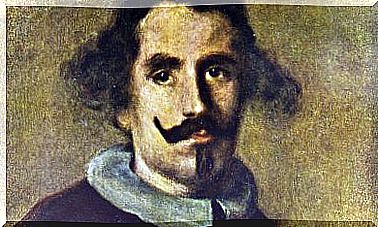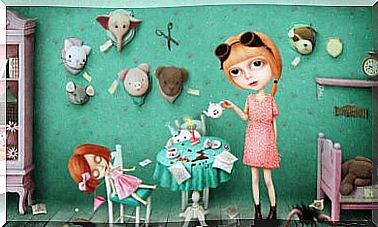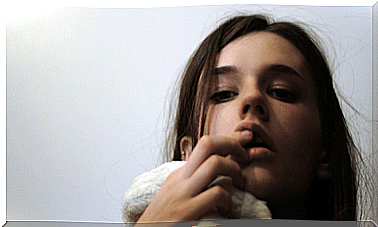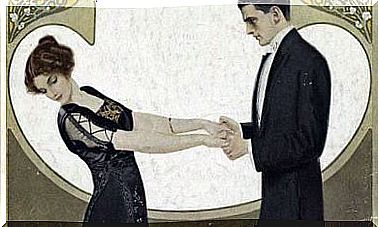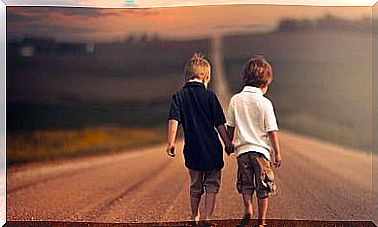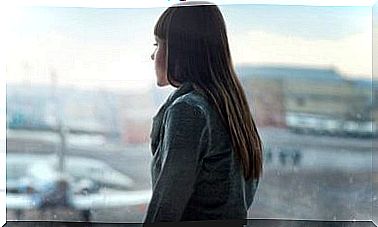7 Piaget Phrases About Childhood And Learning
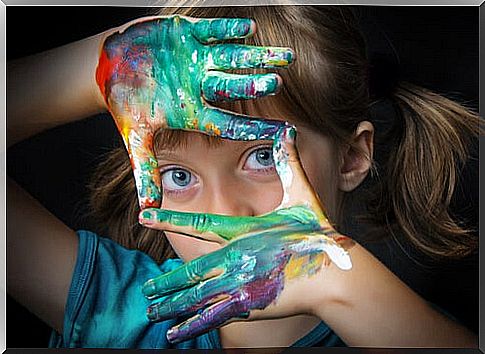
Jean Piaget was a well-known constructivist psychologist in the fields of child psychology and learning. His studies and research were highly influential in both evolutionary psychology and modern pedagogy. Piaget’s phrases are a clear example of his passion for the study of development.
Piaget had children from whom he learned a lot. Through detailed observation of their growth, he developed a theory about intelligence and established certain stages of children’s cognitive development.
In this article we have selected 7 phrases from Piaget that tell us about the two topics that he was most passionate about: childhood and learning. Let’s go deeper.
1. The importance of not always doing the same
What is the use of repeating the same thing? Piaget launches a very great criticism of the educational system with this phrase. Something that could apply even today. In how many schools is creativity encouraged? In very few cases, the majority focus on a syllabus and the assessment of exam marks to determine the level of the students.
Young people sit for hours listening to their bored teachers. The dynamics is the same as always. Do exercises, learn the syllabus by heart and develop it on the exam. There is no learning, there is no criticism, there is no reasoning, no one questions anything. Is this really what we want?

2. The true meaning of education
Since we were little we hear things like “stop jumping” or “behave like a big kid”. They don’t even let us be children. They push us to quickly become the prevailing adult stereotype in society that lives at high speed through automatism.
All this limits us, pigeonholes us and prevents us from standing out. As Piaget says, education should nurture creative adults, full of new and non-conformist ideas. However, every day we observe the opposite …
3. Children can discover new things to us
This is one of Piaget’s phrases that best reflects his interest in the world of children and, above all, his great admiration for them. Piaget knew that thanks to children we can learn new things, even if we are not aware of it.
Children are not yet contaminated by society. They are free, creative, inventive and curious. But as we grow we lose that interest in discovering the world and we plunge into a series of paradigms that limit and confine us. Perhaps, we should learn a little from the little ones …
4. The teacher is not a speaker
Many teachers come to their classes, explain the subject, send home exercises, and go to the next classroom. This is not the true job of a teacher. His role should be more active and he should be more involved in stimulating his students.
Piaget says it in a very wise way, explaining that the teacher should promote the initiative of his students and enhance their curiosity. This is how true learning is achieved.

5. Playing is the child’s job
This is another of Piaget’s phrases that refers to childhood and the importance of play for child development. That is why it is so important to encourage it in the little ones instead of imposing restrictions. Playing is precisely the work of children. Through the game a whole world of possibilities begins to appear both individually and socially.
6. Let children discover the world
We adults already know everything, however the little ones do not. Therefore, it is not necessary to explain absolutely everything to them. You have to allow a margin to allow them to discover the world for themselves, to ask questions and experiment in their own way.
7. Stay partly like a child
Do you want to boost your creativity? Do you want to increase your inventiveness? So, stay partly like a child. Because they are free and their thoughts are not distorted or contaminated by adult society.

With this last of Piaget’s phrases, we can think about the number of times we judge and how we limit ourselves by it. Why are we lacking in curiosity? Perhaps, we should turn our gaze to the little ones and begin to unlearn what we have learned and what limits us so much.
Each of Piaget’s phrases are a reflection of his gaze, of his way of perceiving the world and, specifically, children. A series of criticisms that seem to have not been resolved at present. We hope you liked them and that you tell us which of them has marked you the most. Although a very wise teaching can be drawn from all of them.
